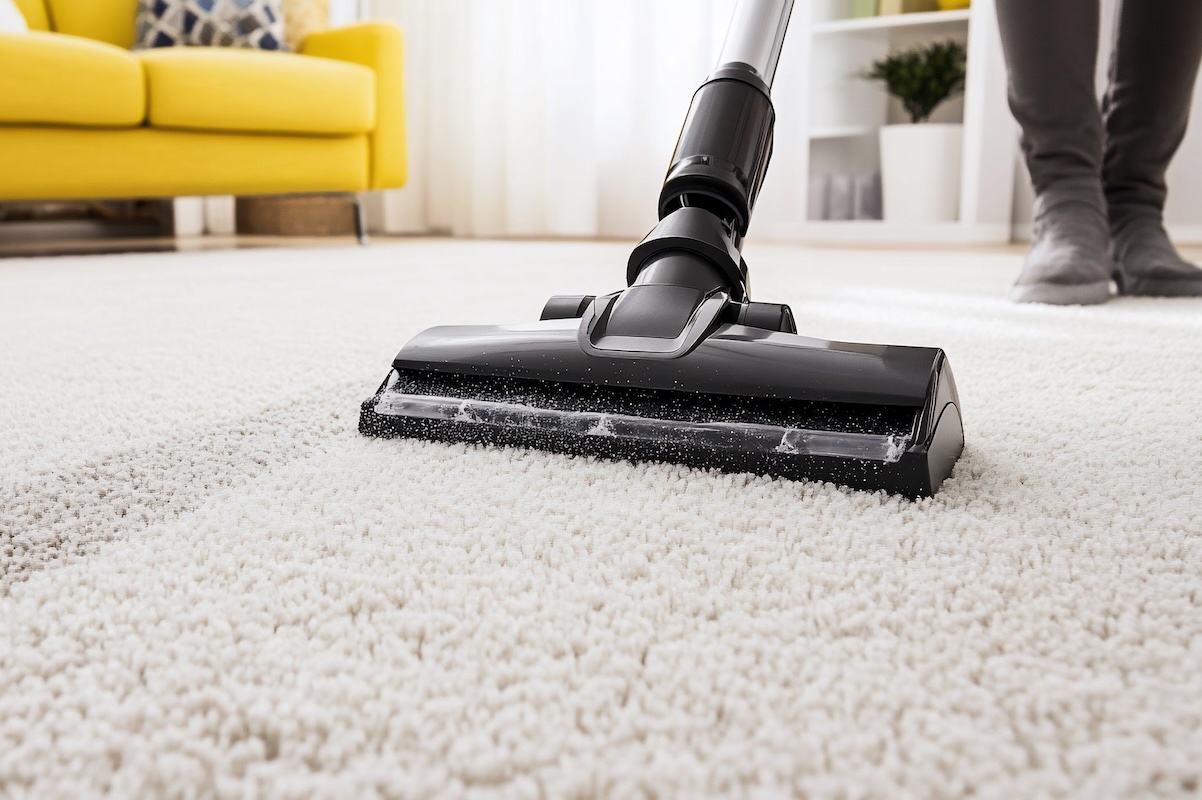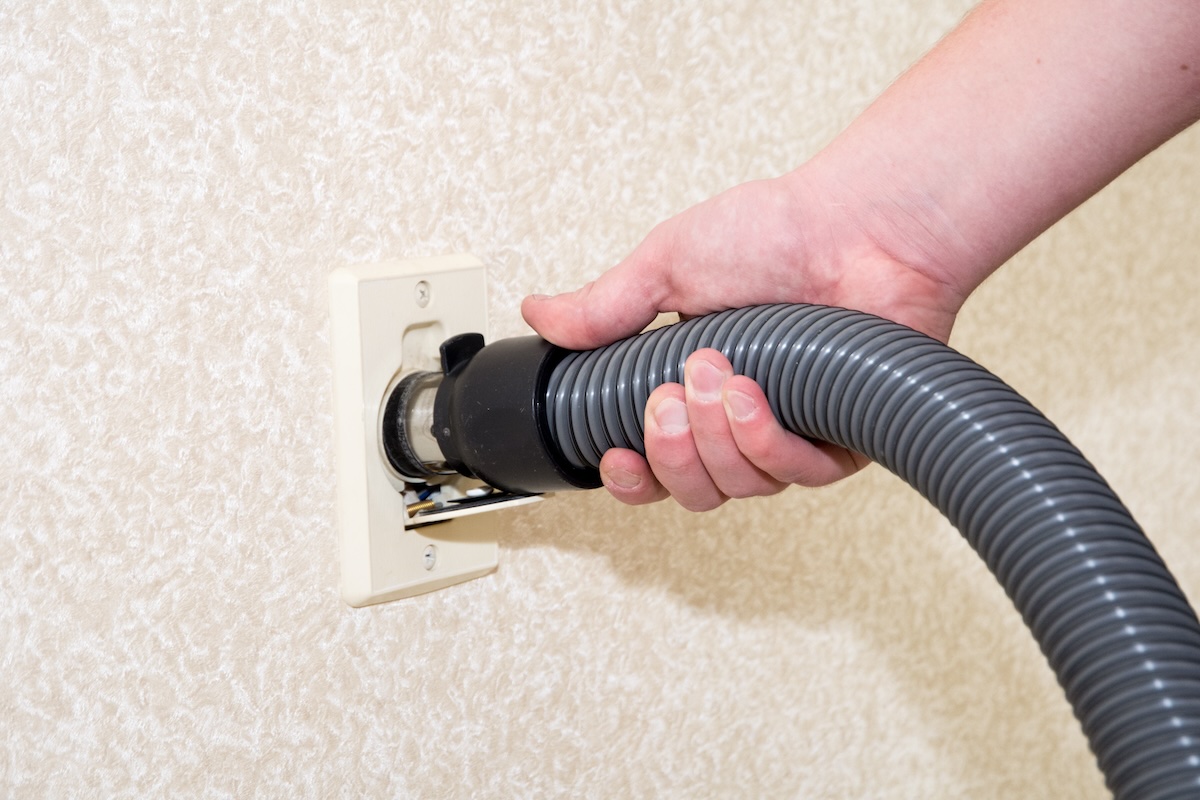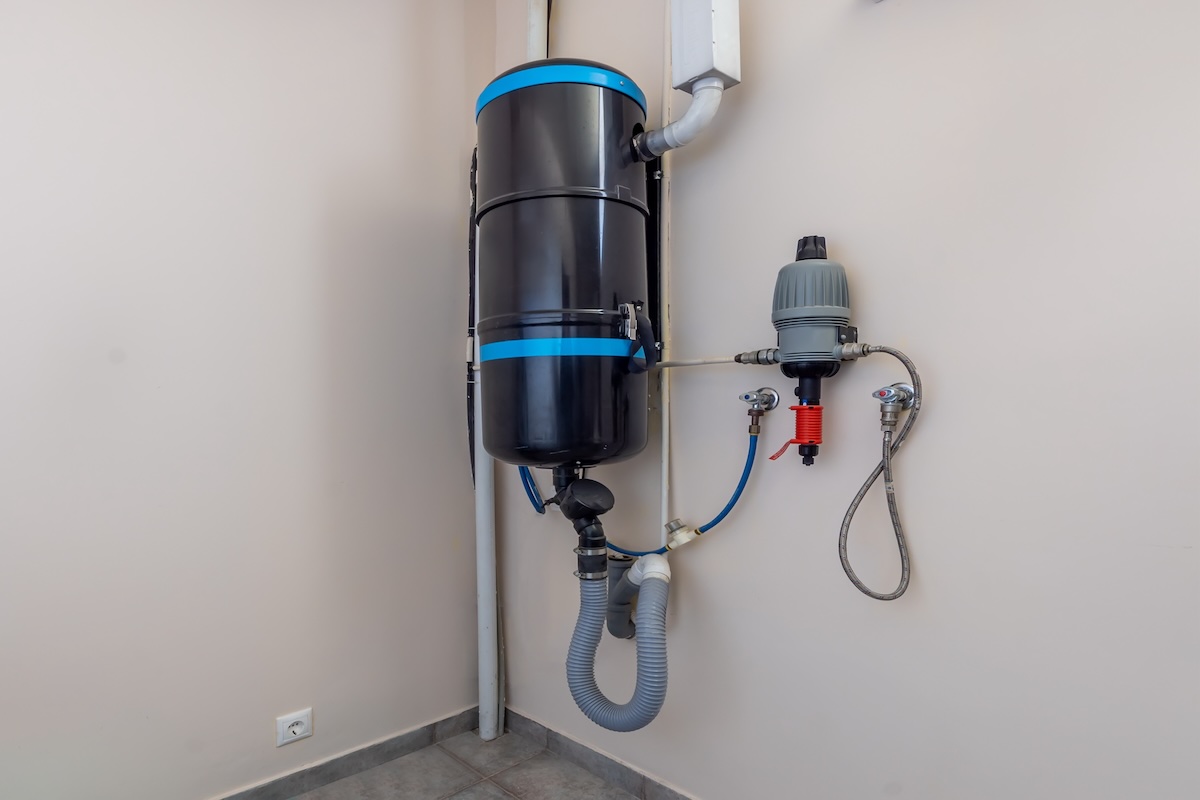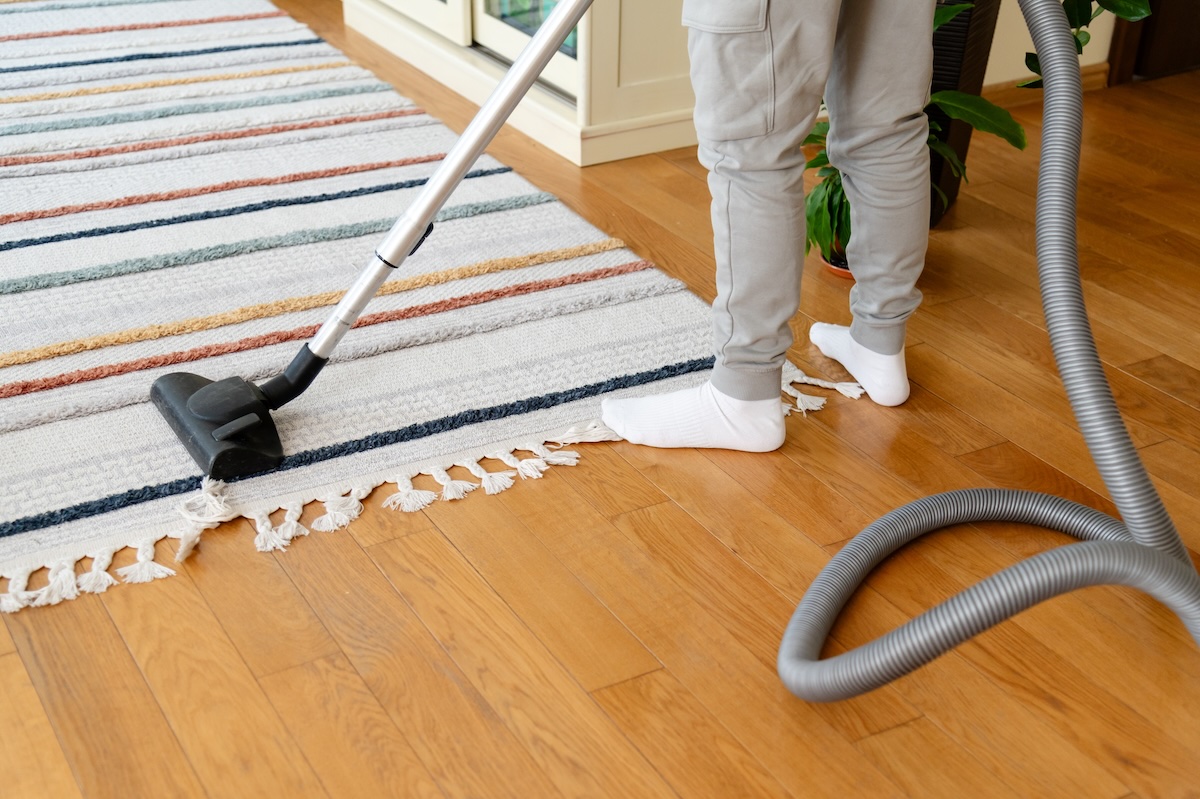If you’ve spent any time researching vacuum cleaners—especially the higher-end vacs—you’ve probably seen the term HEPA filtration tossed around.
But what does HEPA actually mean? And is it something you really need to care about, or is it just a buzzword used to justify higher price tags?
Let’s clear the air. (Pun intended.)
What Is a HEPA Filter?
HEPA stands for High Efficiency Particulate Air. For a filter to be called HEPA, it has to meet a specific standard: it must trap at least 99.97% of particles that are 0.3 microns in size.
That includes a whole range of stuff you don’t want floating around your house—dust mites, pollen, mold spores, pet dander, and even some bacteria. Basically, HEPA filters catch the tiny, nasty particles that most basic vacuum filters just blow back into the air.
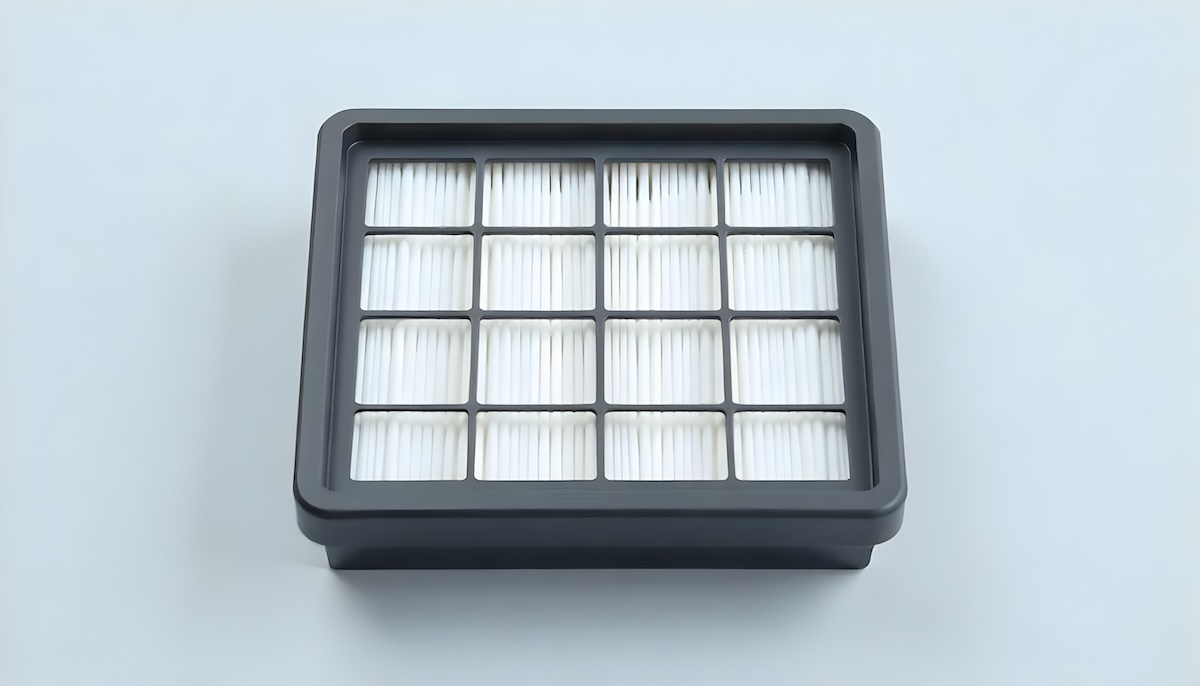
A HEPA filter, like the one shown above, is made from tightly woven fibers arranged in a pleated pattern. The design increases the filter’s surface area, allowing it to meet the standard.
Of course, not all HEPA filters look exactly like the one above. Some are rectangular with pleated material, like the one shown, while others are circular or disc-shaped like the one below. This kind is often found in bagless vacuums or air purifiers.
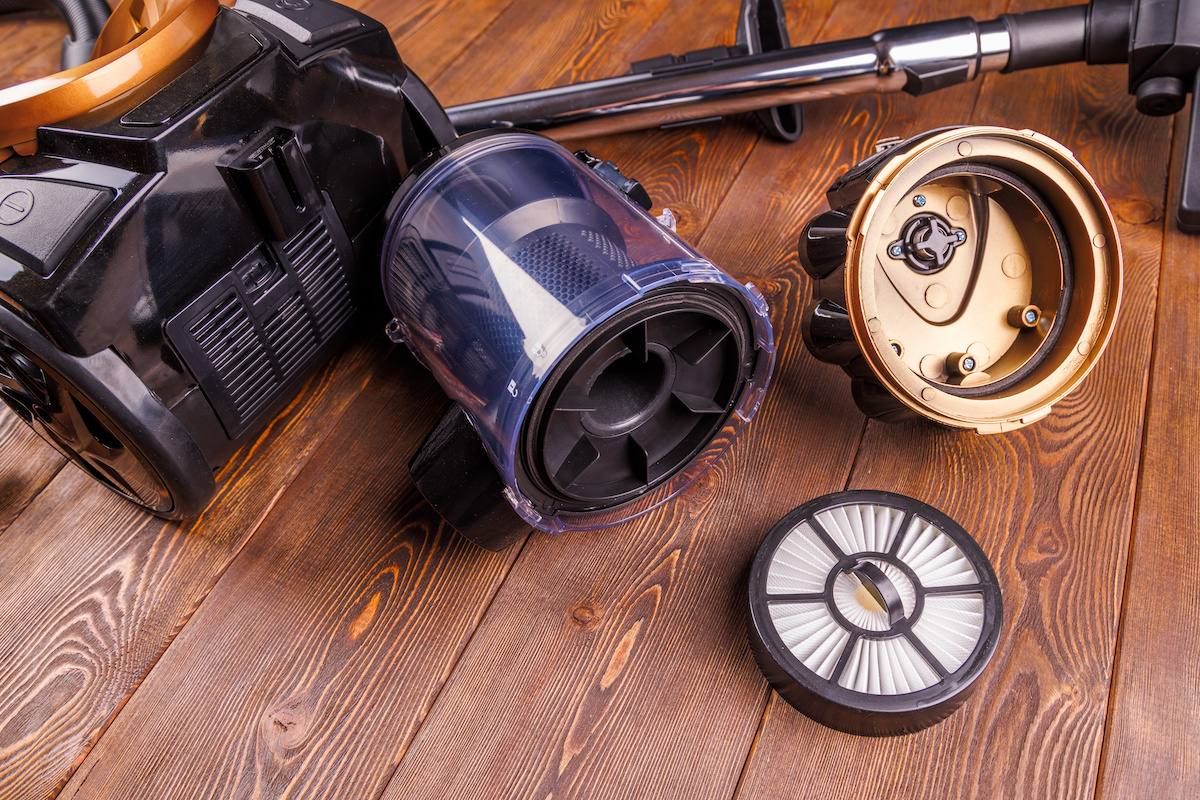
In premium vacuum brands, HEPA filters may also be enclosed in a rigid frame or layered with additional filtration materials, like activated carbon, to capture odors along with fine particles.
HEPA Filter vs. Sealed HEPA System
Here’s the part most people miss: a vacuum can have a HEPA filter and still leak dust.
Why? Because the filter only works on air that actually passes through it. If the vacuum’s body isn’t properly sealed, air—and the fine dust you’re trying to clean up—can escape through gaps around the motor, hose connections, or even the dustbin.

That’s why a sealed HEPA system is preferable. Vacuums with these systems don’t just have a HEPA filter inside them—they’re built to make certain that all the air goes through that filter before being pushed back into your home. It’s a bit like the difference between wearing a fitted dust mask, and holding one a few inches away from your face. Sealing is important when it comes to those small particles.
Why It Matters for Real-World Cleaning
Let’s say you’ve got allergies. Or pets. Or you just don’t want to breathe in all the microscopic debris you just vacuumed off your floors.
If your vacuum leaks dust out the sides or back, it’s basically recirculating the very stuff you’re trying to clean.
This is especially true for hardwood and tile floors, where fine dust tends to sit on the surface and get stirred up easily. A vacuum with poor filtration will just kick that back into the air, and it’ll settle again ten minutes later.
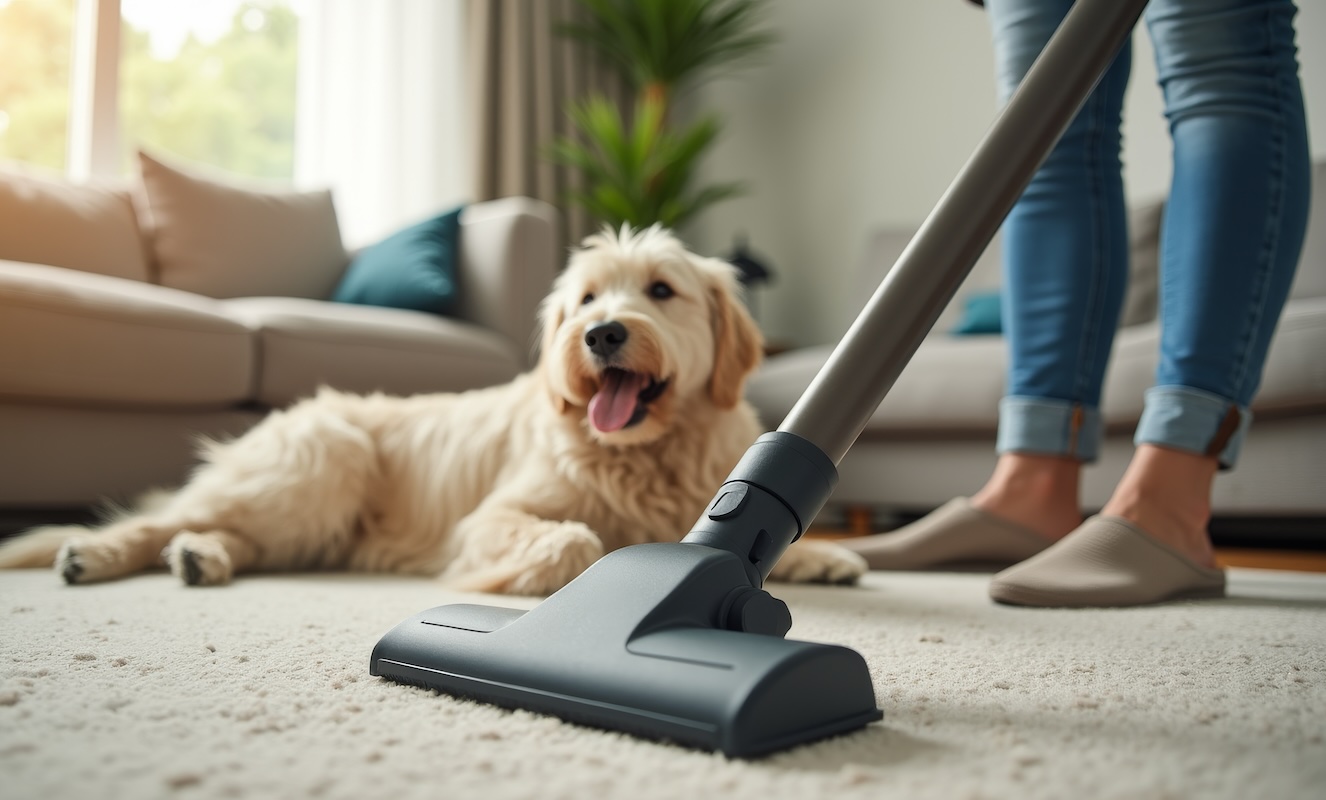
Even on carpet, where dust gets buried deeper, a sealed HEPA system helps trap all the allergens pulled up from the fibers so they don’t just blow out the exhaust.
If you’re looking for a vacuum that checks all these boxes—and works great across hardwood, carpet, and tile—check out our full guide to the Best Multi-Surface Vacuums for Hardwood, Carpet, and Tile. It breaks down the best options from these top brands and helps you choose the right one for your home.
What are Some Brands That Do It Right?
Plenty of brands throw the word “HEPA” into their marketing. But only a few build vacuums where filtration is truly locked down—and those are the ones worth looking at if you’re serious about indoor air quality.
Miele (Complete C3, Guard Series)

Miele’s bagged canister vacuums are known for their fully sealed filtration systems. If you install a genuine Miele HEPA filter (sold separately on some models), the machine becomes a certified HEPA system. And because the dust bags are self-sealing and the body is airtight, you’re not going to see any leaks.
Miele vacuums are especially good for allergy sufferers and anyone who wants ultra-clean exhaust air—whether you’re on carpet, hardwood, or tile.
Sebo (Automatic X7/X8, Airbelt Series)
Sebo is a German brand that doesn’t cut corners. Their vacuums are hospital-grade when it comes to filtration, and the entire system is designed to be sealed from the motor to the filter to the exhaust.

With Sebo, you don’t just get a HEPA filter slapped in somewhere. You get a machine that was clearly engineered from the ground up with filtration in mind.
Riccar (Tandem Air R30)
Riccar makes some of the most powerful vacuums on the U.S. market, and their Tandem Air uprights combine deep carpet cleaning with HEPA-level air quality. Their high-end models feature sealed filtration systems and multi-layer HEPA bags that trap dust without leaking, even under strong suction. That makes them great for homes with both allergy concerns and thick carpet/rugs that get dirty.
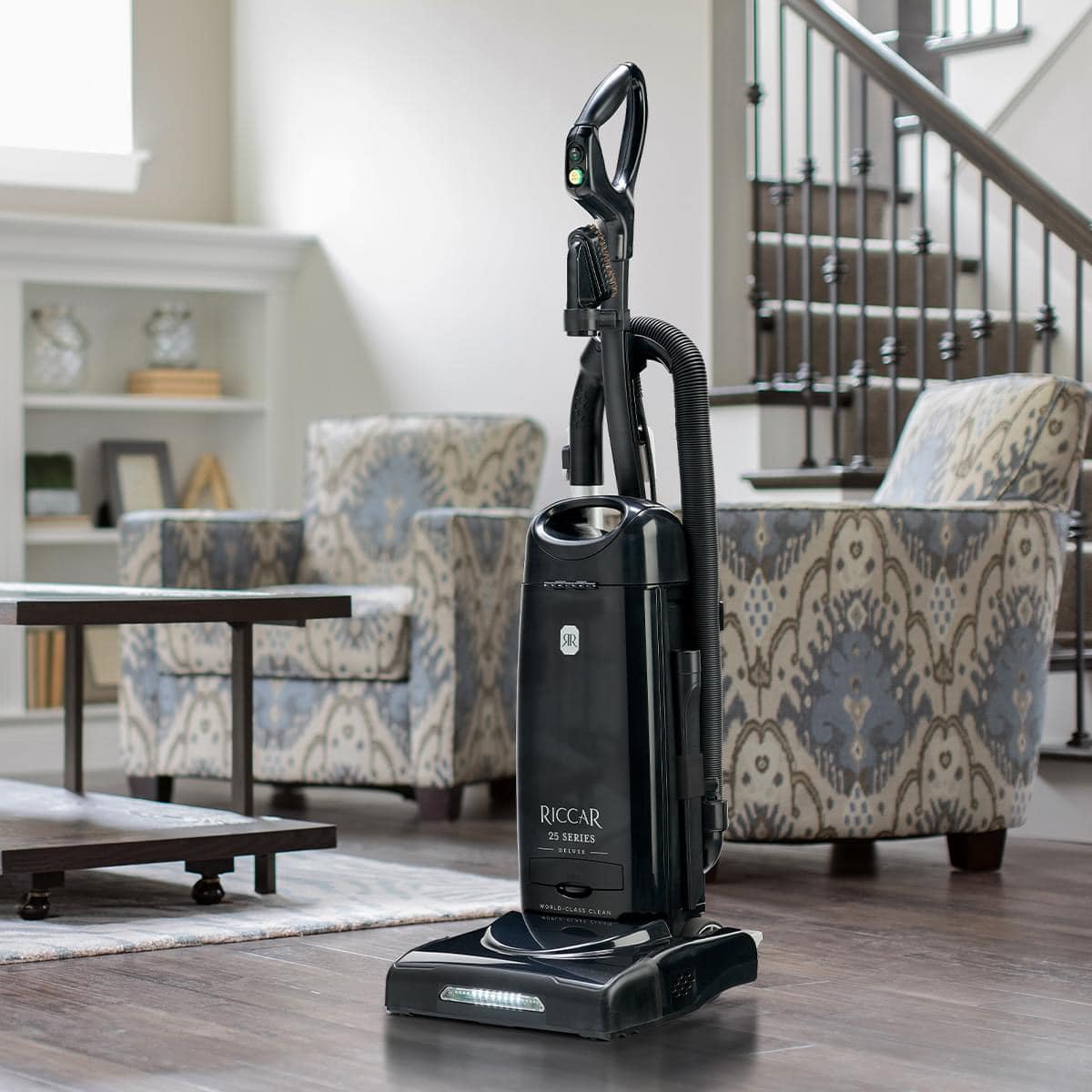
Unlike mass-market vacuums that rely on plastic components in high-stress areas, Riccar integrates metal parts in the brush roll, base plate, and key structural areas, making their vacuum cleaners last a long time, while also being far more durable in general. This also helps with performance—stiffer, more precise components can mean better suction efficiency and smoother operation across different flooring types.
What About Dyson?
Where They Stand on HEPA:
Dyson does use HEPA-level filtration in many of their newer models, especially in their V-series cordless and Ball upright vacuums. They also claim that some of their machines are “sealed,” and independent tests in some cases have confirmed near-HEPA filtration results.
So why didn’t they make the list?
- Cordless vacs have come a long way, but they still don’t offer the same sustained suction or deep-cleaning airflow as premium plug-in canisters or uprights—especially on thick carpet.
- Dyson includes strong filtration in many of their models, but it’s not always clear whether the system is fully sealed—particularly in older units or models that rely on washable filters, which can become less effective over time.
- Since Dyson vacuums are bagless instead of bagged, emptying the dust bin can sometimes stir up fine particles—something to keep in mind if you have allergies or are sensitive to airborne dust.
Also, Dyson leans into cyclonic separation and washable filters instead of traditional HEPA bag + motor filter setups, which aren’t quite as effective at long-term fine dust containment.

Bottom line: Dyson vacuums generally filter well, especially the latest models—but they don’t meet the same bar as Miele, Sebo, or Riccar for sealed, bagged, HEPA-certified systems with long-term durability and consistent performance. Great for convenience and design, but not the first choice if you’re vacuuming specifically for indoor air quality and/or trying to control allergens in your home.
Is HEPA Filtration Always Necessary?
If you live in a small apartment with no pets, no allergies, and mostly hard flooring, you might not need a sealed HEPA vacuum. But even then, it’s not a bad idea—because airborne dust affects more than just allergy sufferers.
It impacts how often you need to dust your furniture, how clean your air smells, and how healthy your indoor environment feels overall.
Even if you don’t have sensitivities, fine particles from everyday activities—like walking across the floor, adjusting couch cushions, or even vacuuming with a poorly filtered machine—can get stirred up and linger in the air. Over time, this dust settles back down on surfaces, meaning you’ll find yourself dusting more often, and if you have sunlight streaming through your windows, you’ll probably notice that constant haze of floating particles.
On the other hand, if you do have allergies, pets, or a lot of carpeting, a sealed HEPA vacuum makes a noticeable difference. You’ll get cleaner air, fewer dust particles floating around after you clean, and a more hygienic home overall.
Final Thoughts

HEPA filters by themselves are useful—but not enough. What really matters is a sealed HEPA system that keeps all that fine dust trapped inside, instead of sending it right back into your home.
Brands like Miele, Sebo, and Riccar build machines around this. That’s part of why they tend to cost more, and why they’re a good choice for people who need serious cleaning performance and cleaner air.

